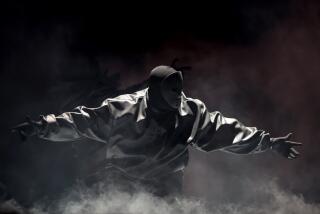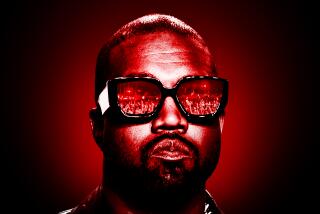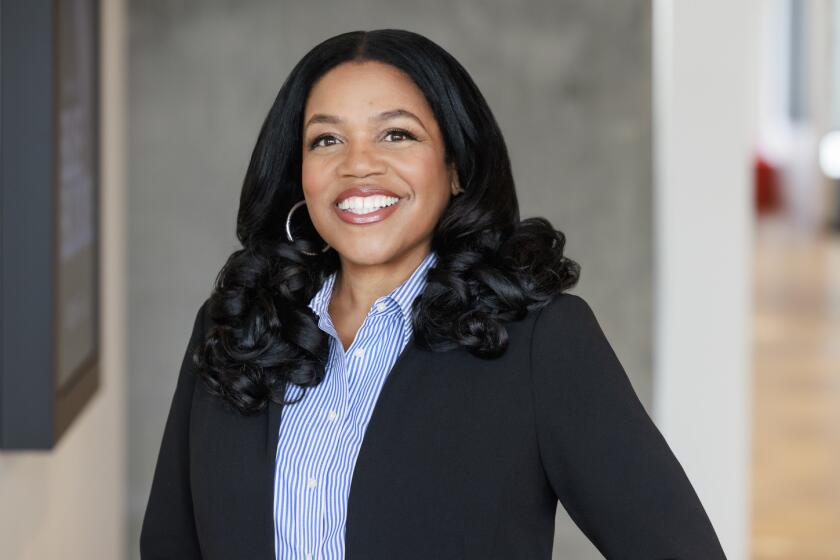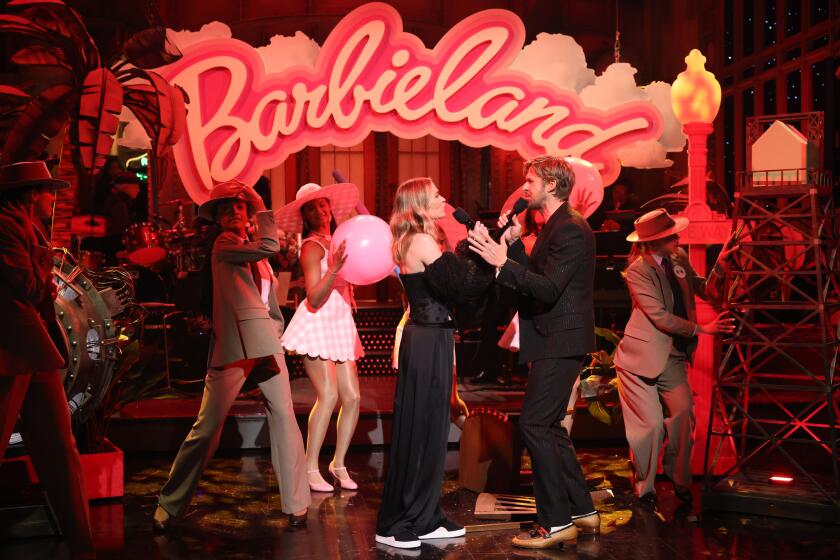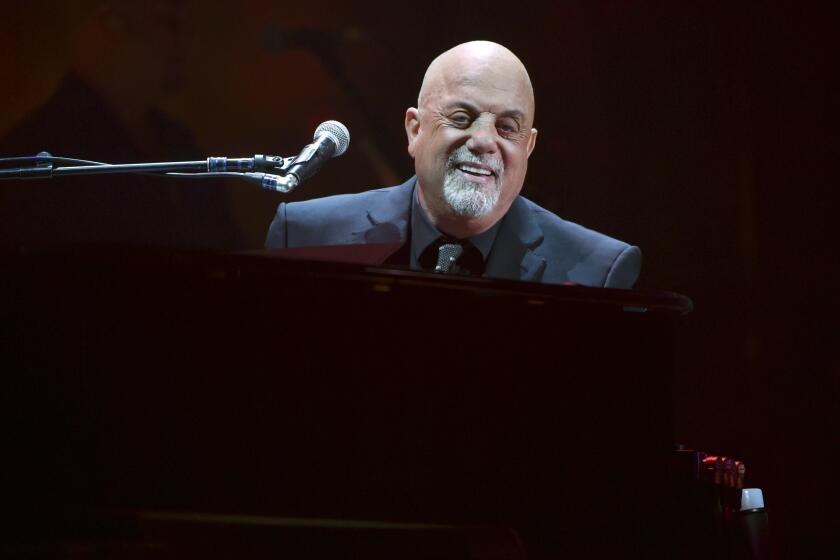Kanye West shapes the message his way
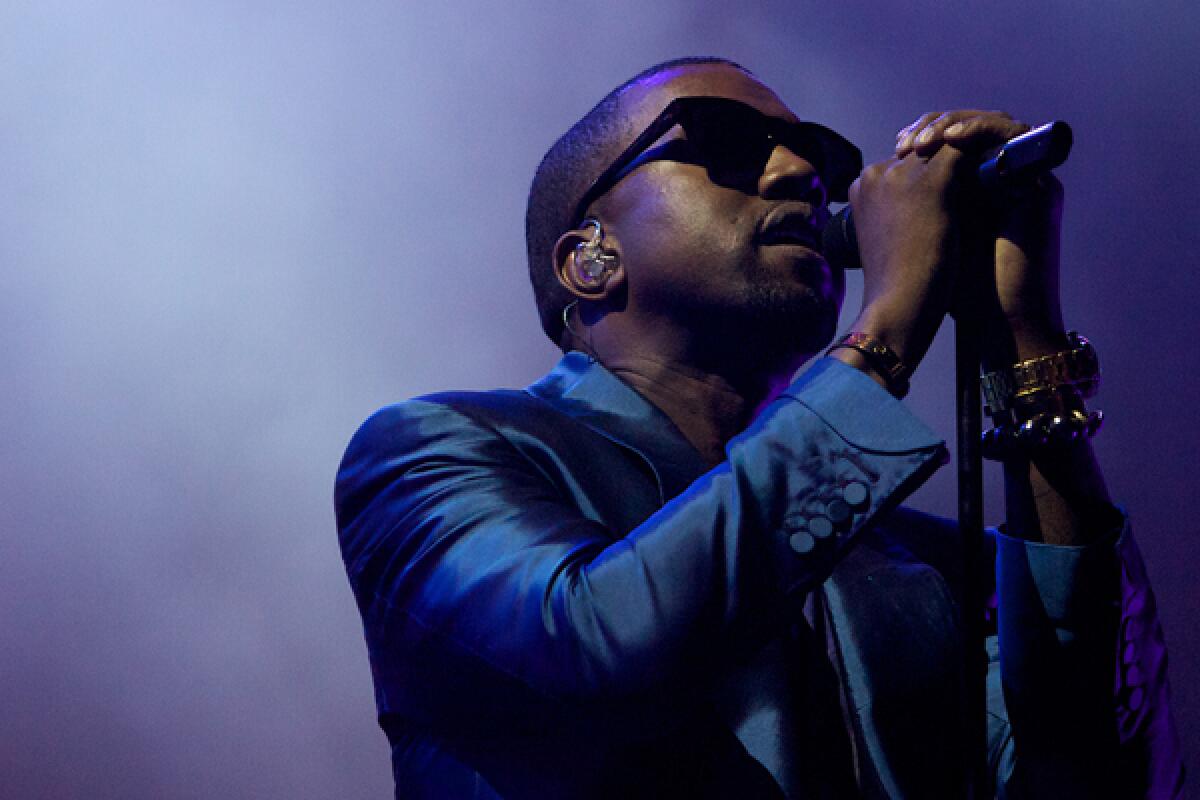
Early this fall, before any kind of promotional push for Kanye West’s new album, “My Beautiful Dark Twisted Fantasy,” had begun in earnest, the Grammy-winning rapper-producer took to his widely read Twitter account to vent. Even for a creative firebrand whose career has in many ways been defined by outrageous behavior and controversial statements, West’s remarks stood as a defiant dismissal of every rule in the major label marketing playbook. Call it a tweet as mission statement.
“Man I love Twitter,” West posted on Sept. 4. “I’ve always been at the mercy of the press but no more.”
And so began a campaign of nearly unprecedented, self-styled image control and media spin that culminated Nov. 22 with the album’s release. Even in an era when social networking tools allow artists ever greater freedoms to communicate directly with fans, the so-called Louis Vuitton Don has taken the notion of personally generating his own hype to further extremes than just about anyone in popular culture.
The upshot: “My Beautiful Dark Twisted Fantasy” was on track to sell more than 550,000 copies in its first week on the market, according to a senior staff member at his label Universal Music Group who declined to be named because he was not authorized to speak publicly on behalf of the company.
Moreover, West has seemingly sidestepped conventional logic and courted controversy every step of the way. After nearly a year of silence following the public outcry that accompanied West’s interruption of Taylor Swift’s 2009 MTV Video Music Awards acceptance speech — including abandoning a co-headlining tour with Lady Gaga — he spearheaded his own promo initiative by giving away alternate and non-album tracks from “My Beautiful Dark Twisted Fantasy” on his blog at KanyeWest.com. The performer spurned the overwhelming majority of interview requests — the notable exceptions being an appearance on “The Ellen DeGeneres Show” and a stint “guest editing” XXL magazine (in which he basically interviewed himself) — and took to Twitter to lambaste various reporters and media outlets, including The Times (for what West decried as a “soulless” review of his short film “Runaway” and “Today” show host Matt Lauer.
In the process, the performer has won critical props from a constellation of recording stars and past collaborators — even a powerhouse TV producer whose show West dissed on a single from the new album.
To hear it from multiplatinum-selling R&B crooner John Legend, who is signed to West’s G.O.O.D. Music imprint, appears on “My Beautiful Dark Twisted Fantasy” and is currently working on an album to be released in 2011 with West, “all this wacky stuff and this controversy” does more than generate publicity. It sets West apart as a sort of endangered species, an artistic loner in an age of mannered shock value and carefully laid-out viral marketing initiatives.
“Clearly, he does things that are provocative,” Legend said. “That’s cool. That’s a part of what makes him interesting as an artist. He puts it all out there in every way — musically and with his personality. It’s all out there. I think that throws people off.”
Unsurprisingly, efforts to reach West were unsuccessful. When his publicist, Gabe Tesoriero, was asked via e-mail about West’s interview availability on a scale of 1 to 10 — with one being “not a chance” and 10 being a sure thing — Tesoriero responded with a numerical one, accompanied by a frowny-face emoticon.
Likewise, executives at Universal Music Group declined to comment. “My Beautiful Dark Twisted Fantasy” is no doubt a priority for the label, given its holiday-timed release and West’s star persona, yet in a depressed climate in which labels are eager to talk about any success, multiple requests over the last two weeks to speak to representatives of Universal’s Island Def Jam imprint were met with notable silence.
Instead, West has largely been a one-man show. Online, he has been the comedian — “Don’t you hate it when you say bye to someone then yall get on the elevator together,” he tweeted in August — as well as the victim — “I can’t be everybody’s hero and villain savior and sinner Christian and anti Christ!” he noted in November.
“Outlets like Twitter,” said suave R&B star Ne-Yo, allow West the opportunity to “vent to the world.”
“I think it’s a beautiful thing,” Ne-Yo said. “By now, you know who Kanye is. If he feels like he was disrespected, he’s not only going to say it, he’s going to stand on a chair and scream it. That’s who he is. He’s a master of PR. He knows what he is doing.”
But does anyone else? The answer remains unclear. For instance, West tweeted that his intended album art for “My Beautiful Dark Twisted Fantasy” had been “banned in the USA,” adding that he didn’t think about Wal-Mart when picking art. The retailer issued a statement, saying it had never been shown the sexually graphic image, and multiple Universal Music Group staffers contacted by The Times were unaware of any such banning.
With West, unfiltered, perhaps, would be an understatement. His artistic peers admire it, even if they wouldn’t take a similar approach. Justin Timberlake is a fairly regular Twitter presence with nearly 4 million followers. Unlike West, however, the pop icon and freshly minted movie star neither uses the platform to promote a personal agenda nor to provide an up-close slice of his life.
“I’ll use it for, like, ‘Hey, check out my friend’s charity,’ or ‘Listen to this person’s song.’ Not, ‘The chocolate chip cookies from Corner Bakery are awesome,’” Timberlake said. “Maybe, because I don’t get that much time off, when I do I don’t want to be anywhere close to technology.”
Asked if he would ever consider relying upon Twitter as his personal soap box — or in lieu of a publicist — in the manner of West, Timberlake demurred.
“That works for some people. Everyone has a way of using social media to engage an audience,” he said. “I don’t want to engage in that way. I’m more of a private person, and I don’t know that it would feel comfortable.”
West was sufficiently infuriated by two 2009 skits on “Saturday Night Live” — one featuring Swift and another in which “Twilight” star Taylor Lautner decapitates an effigy of the rapper with a karate kick — to pen a rhyming couplet on his May single “Power” that told the comedic variety show where it could go (and what body part it could kiss) in so many four-letter words. Still, the performer was not only invited back on the air in October, “SNL” gave him carte blanche to mount one of the most elaborately staged and art-directed performances in the show’s history — of the very song that disses “Saturday Night Live.”
The show’s creator and longtime executive producer, Lorne Michaels, said West’s fighting words never burned his bridges with “SNL.”
“He reacted the way he reacted, but I never thought twice about having him back on the show,” Michaels said. “If the music hadn’t been good? Then I wouldn’t, obviously. But when a person is that talented, of course. Kanye is the real thing.”
West moved away from hip-hop with 2008’s “808s and Heartbreak,” a downbeat breakup album that divided critics and was his only effort to not garner a Grammy nomination for album of the year. First-week sales of “808s” tallied 450,000 copies, according to Nielsen SoundScan, less than half of the first-week totals of his 2007 effort, “Graduation.” Reviewers, however, have uniformly backed West’s latest, as it earned perfect scores from Rolling Stone and Pitchfork, and it appears on target to give the artist a commercial and critical rebound.
Through it all, West has been a signature artist for MTV, and the network milked his so-called feud with Swift for this year’s VMAs, resulting in MTV’s most-watched music video award show since 2004. Amy Doyle, the executive in charge of music and talent for the network, isn’t giving West and Swift all the credit for the ratings boost but notes it didn’t hurt.
“People want to see him on TV for all kinds of reasons,” Doyle said. “I truly believe they come for his art. But they clearly get a lot more than that. He speaks very honestly about what he’s feeling, and it’s actually quite refreshing.”
And necessary, said Legend. For all the groundbreaking critical accolades heaped upon the artist, Legend said, he fulfills another time-honored pop tradition.
“We need rock stars in our culture,” Legend said. “I feel like we don’t have as many right now as we used to. It’s cool to have an outrageous, outsized persona in popular culture, and Kanye’s doing that. He’s also making really interesting, innovative and exciting music. We should be grateful to have an artist like him right now.”
Times staff writer Gerrick D. Kennedy contributed to this report.
More to Read
The biggest entertainment stories
Get our big stories about Hollywood, film, television, music, arts, culture and more right in your inbox as soon as they publish.
You may occasionally receive promotional content from the Los Angeles Times.
